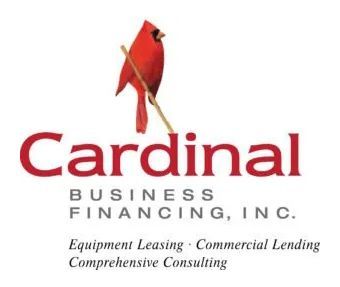Call Us Today! 866-578-5999 x1001
Call Us Today! 866-578-5999 x1001
1. Create a financial plan for your
first year in
business.
Too often we see established businesses that have no business plan! Set up a sales forecast and a target expense budget. These are essentially your best guesses, and you should have a “plan B” in case things don’t work out as you expected. Don’t know where to start? No problem. The SBA provides a great
guide to writing a business plan.
3. Diversify your risk by working with a large number and variety of customers. If your business relies on just a handful of big customers, you risk losing a hefty portion of your revenue and profit if one of them decides to take their business elsewhere. Your business can also warp around the specific needs of those big customers, which could hurt your chance of attracting new clients. In general, it’s a good business practice to not let one customer make up more than 10% of your revenue. As an aside, that is why the SEC requires investors to register when they own 5% or more of a public company. If you have a customer that owns more than 5% it could be risky.
4. Don’t depend on just one supplier—especially if they’re a small business too. You never know what could cause a shipment to be delayed or a supply chain to break. Try to have a backup supplier in case inventory doesn’t come in on time. If that’s not possible, communicate openly to your customers about delays and be prepared to make things right with discounts on future purchases or no hassle refunds. While it might hurt your bottom line immediately, a bad reputation is much harder to recover from. See tip #7 for more on this.
5.Don’t run out of cash. Although it seems obvious, many new entrepreneurs don’t realize that their business can die even if they run out of cash for just one day. Think of it this way—if you’re short on cash on payday, you could pay your staff late by a day or two. But do this even once and you risk losing employees and hurting morale. It’s just not worth it.
6.Manage your cash flow. Understand how cash flows into and out of your business. For example, is your business seasonal? Are there fast and slow periods? When are your bills due, and how likely are customers to pay you on time? As with tip #2, always have a backup plan so you’re covered when things go wrong.
7.Maintain a good relationship with your customers. While this applies broadly to anyone who interacts with your business, poor customer satisfaction can tank your business faster than anything else. If things go wrong, be prepared to make them right – use discounts, free product, refunds – whatever it takes. This may also help your business when you’re in a jam.
8.Don’t be afraid to get advice or help. Leave your ego at the door and always look for opportunities to keep learning. This is true for new small business owners or those with decades of experience. Talk with other business owners in your industry or in your local area. You can also find great information on resources throughout the internet. For example, Guidant Financial has a great Learning Center with content that is particularly helpful to new business owners and startups.
9.Become active in your community. Join civic organizations such as The Rotary or Kiwanis Clubs. Understand the challenges being faced in your community and become involved. Join a networking group. For example, organizations such as Center Sphere which connects business leaders who will drive revenues for your business and who can play an important role in your growth.
10.It’s never too early to start building your business credit. Most entrepreneurs don’t realize that at some point, you’re likely to need capital to grow the business. Be sure you take the essential steps to build your business credit now so that you’ll be ready when you need to apply for financing. You can start with applying for credit at Home Depot, Lowes, Costco and others. You don’t need a big credit line to have an excellent rating.
The post
Ten Tips for Small Business Owners
appeared first on
Cardinal Business Financing, Inc.
.






Contact Info
Business Hours
- Mon - Fri
- -
- Sat - Sun
- Closed
By appointment only
Free Initial Consultations Available

